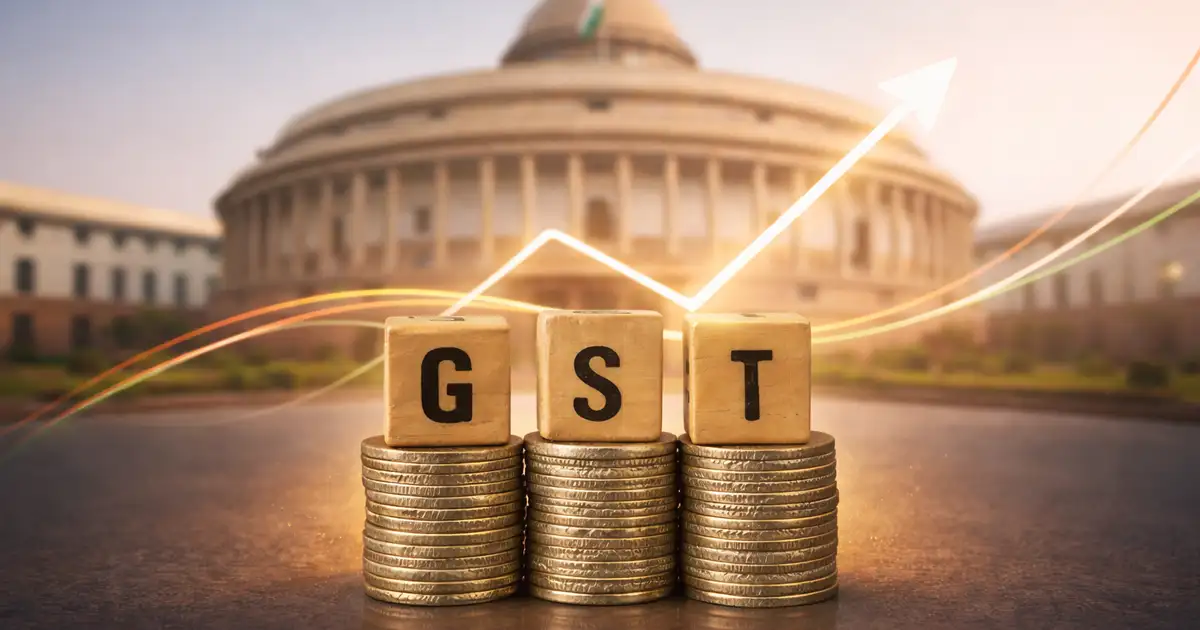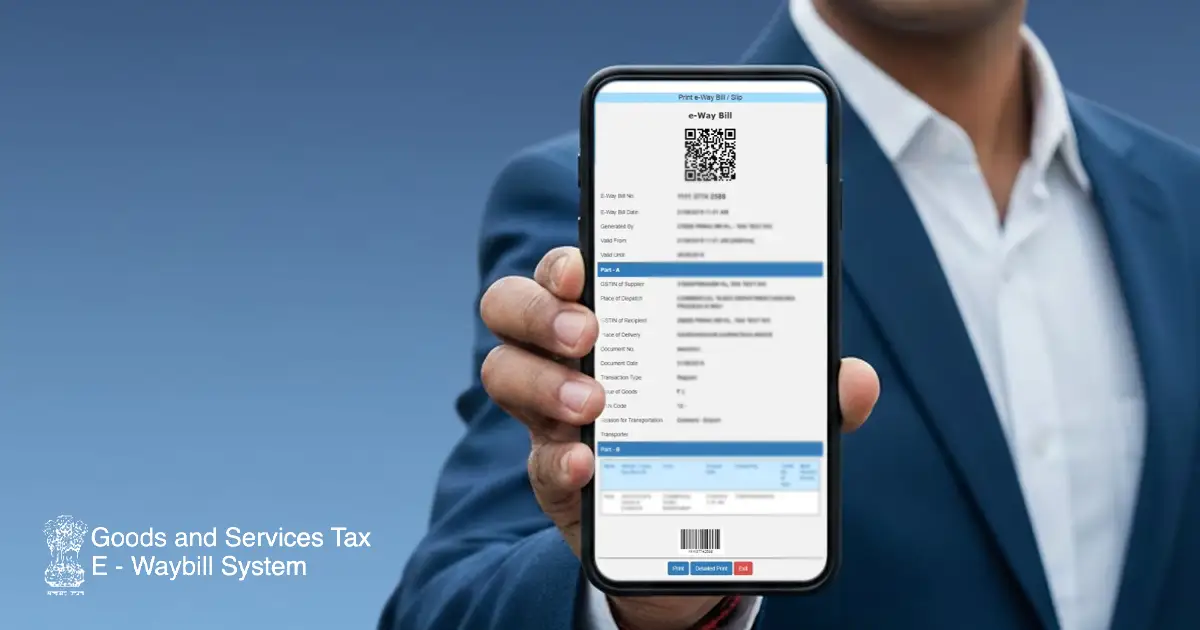
Running a business in India means dealing with the mandatory procedure of GST at every turn. This procedure can also include hiring a security guard, getting your office cleaned, or even hiring temporary staff. It’s vital to understand how GST applies to labour charges. While the subject may come across as difficult to understand, this blog will help you navigate the topic for better understanding.
What are Labour Charges on HSN code and GST rate?
One of the doubts that many recipients hiring labourers in today’s landscape might have is GST applicable on labour charges. The short answer is yes. The GST tax on labour is 18%. Here, you pay a part-time or full-time laborer for their time and skills.
Two Types of Labour Contracts to Know
To know how to calculate GST on labour charges, it’s vital to be aware of the two different categories of labour contracts.
- Pure Labour Contracts:
Under this contract, the important materials are provided by you, while the contractor only provides the workmen and their abilities. For example, you supply cement and bricks while the contractor brings workers to build the wall.
- Mixed Contracts (Works Contracts):
Everything, such as workers, materials, and equipment, is provided by the contractor. This is what the GST law refers to as a “composite supply.” For example, a contractor assembles your entire office with the supplies and team members they provide.
Service Type with HSN code and GST rate
Most labour charges on HSN code and GST rate amount to 18%. For a better understanding of the HSN code, kindly visit the link HSN code in GST.
This rate is applicable whether you hire one labourer or an entire team. With the help of a table, we can understand this topic better.
HSN Codes and Rates Table
| HSN Code | Service Type | GST Rate |
| 998511 | Executive Search Service | 18% |
| 998512 | Permanent job placement | 18% |
| 998513 | Contract staffing | 18% |
| 998515 | Long-term payroll services | 18% |
| 998516 | Temporary to Permanent Hiring | 18% |
| 998517 | Co-employment services | 18% |
| 998518 | Other Labour Service Supply | 18% |
How to Calculate GST on Labour Charges?
Calculating GST isn’t just about applying 18% to the basic labour cost. You need to include several components in your calculation.
What Gets Included in Taxable Value:
- Basic labour charges
- Service fees
- EPF (Employee Provident Fund) contributions
- ESI (Employee State Insurance) contributions
- Any other statutory dues
- Transportation allowances
- Overtime payments
Simple Calculation Example:
Let’s say you hire security services:
- Basic security charges: Rs.10,000
- Service charges: INR 1,000
- EPF contribution: INR 1,200
- ESI contribution: INR 475
Total taxable amount: Rs. 12,675 GST @ 18%: ₹2,281 Final amount you pay: ₹14,956
Exemptions on Paying GST
The government provides relief in certain situations. You can skip GST payments when:
Construction Services Exemptions:
- Building a single independent house
- Constructing one unit in a residential complex
- Working on government housing schemes like Pradhan Mantri Awas Yojana
- Participating in Housing for All initiatives
Government Sector Exemptions:
- Services provided to Panchayats for constitutional duties
- Municipality services like waste management
- Social welfare department activities (anganwadis, hostels, schools, etc.)
Important Note: These exemptions only apply to pure labour contracts. If materials are included, you’ll pay GST.
Registered vs Unregistered Contractors: What Changes?
One of the common questions that arises today is whether GST is applicable on labour charges or not. It is not just applicable, but also impacts the overall structure of how you pay the contractors.
| Contractors with GST registration | Contractors without GST registration |
| They charge you GST directly | You pay GST under the Reverse Charge Mechanism |
| They can claim input tax credits | You are directly responsible for GST compliance |
| You get a proper GST invoice | GST is deposited directly into the government |
| Straightforward Process | More Paperwork |
Registration Requirements for Labour Contractors
Labour contractors must register for GST when their annual turnover crosses:
- ₹20 lakh in special category states (Northeast, Himachal Pradesh, Uttarakhand)
- ₹40 lakh in all other states
Smart contractors often register voluntarily even below these limits to claim input tax credits and appear more professional.
Impact of GST on Labour Contracts
The introduction of GST simplified the tax structure for labour contracts, like having a GST rate on labour charges for construction. Previously, businesses dealt with multiple taxes:
Pre-GST Tax Structure:
- Excise duty: 12.5%
- Service tax: 15% on 40% of contract value
- VAT: 5%
- Total effective rate: Around 23.5%
Post-GST Structure:
- Single GST: 18%
- Benefit: Lower overall tax burden
- Added advantage: Input tax credit available
Takeaways for Business Owners and Labour Contractors
Whether you are hiring workers or providing labour services, these practical tips can help you stay compliant and save money on GST.
| For Service Recipients | For Labour Contractors |
| Always verify the contractor’s GST registration | Register for GST to claim input credits |
| Keep proper documentation for all payments | Issue proper GST invoices |
| Include statutory contributions in the GST calculation | Maintained a detailed record of all expenses |
| Study RCM obligations for unregistered contractors | File returns on time to avoid penalties |
Common Mistakes to Avoid
Sometimes it’s easy to overlook some important invoice-related details, like Is Labour charges taxable under GST. This can lead to a lot of complications during final billing. So let’s discuss helpful pointers to avoid any issues related to GST.
- Calculating GST only on basic charges: Always include EPF, ESI, and other statutory dues.
- Ignoring RCM obligations: Do not hire labourers who are not registered under GST.
- Mixing up exemptions: Pure labour contract exemptions don’t apply to works contracts.
- Poor documentation: Always maintain proper invoices and payment records
Impact on Different Industries
While the integration of GST in labour taxes has been beneficial for the most part. It does bring a change to diverse sectors, affecting them differently. Let’s understand how these different sectors can benefit from the GST invoice format for labour charges.
- Construction Industry:
Benefits from exemptions on residential projects while paying standard rates for commercial work.
- Staffing Agencies:
Face the full 18% GST rate, but can optimize through input tax credits.
- Manufacturing Units:
Can claim input credits on labour charges, reducing the overall tax burden.
Tips to Comply with GST on Labour Charges
The GST invoice format for labour charges continues evolving with regular government notifications. It’s crucial to know the complete registration process of GST for better compliance.
. Here are some ways to remain updated with the same:
- Following the official GST websites
- Consulting tax professionals
- Joining business forums and groups
- Attending GST workshops and seminars
Understanding GST on labour charges isn’t difficult, but it requires attention to detail. The 18% standard rate applies to most services, with specific exemptions for construction and government projects.
Frequently Asked Questions (FAQs)
1. What is the GST rate on labour charges in India?
The standard GST rate on labour charges is 18% for most services, including security, housekeeping, data entry, and contract staffing. This rate applies to the total transaction value, including statutory contributions like EPF and ESI.
2. Do I need to pay the GST rate on Labour Charges for Construction of my home?
No, you don’t pay GST on pure labour contracts for constructing an independent house or a single residential unit. However, if the contractor supplies both labour and materials (works contract), GST applies at 18%.
3. What happens if my labour contractor is not GST registered?
When you hire an unregistered labour contractor, you must pay GST under the Reverse Charge Mechanism (RCM). This means you’re responsible for depositing the GST directly to the government instead of the contractor.
4. How do I calculate GST on labour charges that include EPF and ESI?
Include all components in the taxable value: basic labour charges + service fees + EPF + ESI + other statutory dues. Then apply 18% GST on this total amount. For example, if the total value is ₹10,000, GST will be ₹1,800.
5. Can labour contractors claim input tax credit on GST paid?
Yes, registered labour contractors can claim input tax credit on GST paid for business expenses like office rent, equipment, and other services used for providing labour services.
6. What is the difference between a pure labour contract and a works contract?
A pure labour contract involves only manpower services, where you supply materials. A works contract is a composite supply where the contractor provides both labour and materials. GST treatment differs for both.
7. Are there any exemptions for government projects?
Yes, labour services provided for government housing schemes like Pradhan Mantri Awas Yojana are exempt from GST. Services to Panchayats and Municipalities for constitutional duties are also exempt.
8. When should a labour contractor register for GST?
Labour contractors must register when their annual turnover exceeds ₹40 lakh (₹20 lakh in special category states). However, voluntary registration helps claim input credits and builds credibility.
9. What documents do I need for GST compliance on labour charges?
Maintain proper invoices, payment receipts, contracts, EPF/ESI challans, and GST returns. For RCM cases, keep RCM invoices and payment proof to the government.
10. Can I get a GST refund on labour charges paid?
If you’re a registered business, you can claim input tax credit on GST paid for labour charges used in your business operations. This effectively reduces your overall GST liability rather than providing a direct refund.




